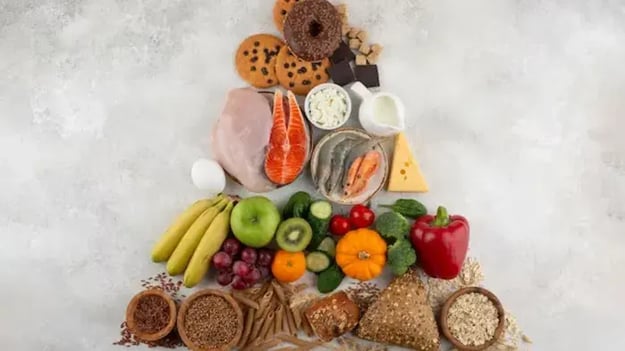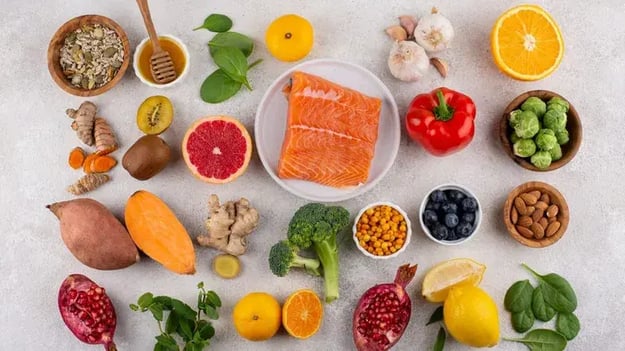- Hemoglobin Production For Menstrual Cycle
- Immune System Support
- Skin Nourishment
- Improved Sleep Quality
- Boosts Memory
- Reduced Fatigue
- Improves Sports Performance
- Hair Health
- Stronger Pregnancies
Teenagers need the support of their parents to properly function in and prepare for the rest of their life. Iron is also a vital mineral for the proper function of hemoglobin. Iron aids in hemoglobin production, a protein that carries oxygen in the body.

Well, there is a high vote for calcium being the most important nutrient for teen growth, but iron also has a major role for growth and development. Iron is a vital mineral necessary for red blood cell production, oxygen transport to body organs, and the synthesis of certain hormones.
Though this can happen to boys, adolescent girls are placed under the high-risk category for iron deficiency and girls from food-insecure households are at greatest risk. Growing teens need more iron because of their increase in muscle mass and blood volume expansion during their adolescent years. Further, girls also need to replace iron stores lost during menstruation. Vegetarian or vegan teens are at a greater risk of iron deficiency.
Why Is Iron Important for Teenagers?
Iron plays a significant role in many diverse bodily functions because it helps the blood carry oxygen to the lungs, muscles and all parts of our bodies. Because of this role, it also is involved in brain function and helps keep our immune system strong.
An iron deficiency may not show any signs or symptoms, or it may result in several, so it’s important for a pediatrician to evaluate your child. One common sign is fatigue. Other symptoms may include shortness of breath; frequent colds and infections; poor concentration; pale skin; lightheadedness; irregular heart rate; headaches; and thin, brittle and concave-shaped nails. Deficient teen athletes may have lackluster training sessions and experience fatigue during workouts.
How to Get More Iron
Iron comes from a variety of foods: meat, poultry and seafood, as well as beans, nuts, enriched grain products and leafy green vegetables.
Animal sources of iron (which contain heme iron) are more easily absorbed by the body, while plant sources (non-heme iron) should be eaten with a vitamin C source to help increase its absorption. Cooking food in a cast-iron pan also can increase iron consumption.
Health Benefits Of Iron Rich Foods For Teenagers

Hemoglobin Production For Menstrual Cycle
As known in the start, iron aids in the production of hemoglobin, a protein in RCB that carries oxygen in the body. Teen girls go through menstruation with loss of blood for the body, which is why teen girls need an iron rich diet. Not having proper levels of iron can cause anemia which is not good for the health. By incorporating iron-abundant foods, teenagers can ensure their bodies maintain adequate hemoglobin levels, preventing fatigue and supporting overall menstrual health.
Immune System Support
Iron is also a key nutrient to boost the immune system. Iron is a key component in the production of white blood cells and other immune system cells, helping teenagers ward off infections and illnesses more effectively. This enhanced immunity can lead to fewer sick days, better school performance, and an overall healthier lifestyle.
Skin Nourishment

Iron-rich foods can also nourish the skin, helping to reduce the appearance of dark circles and blemishes. The mineral's role in oxygenating the blood and promoting healthy cell growth can contribute to a more radiant, youthful complexion, boosting teenagers' confidence and self-esteem.
Improved Sleep Quality
Adequate iron intake has been linked to improved sleep quality. Iron deficiency can lead to restless nights and poor sleep patterns, but by consuming iron-rich foods, teenagers can experience more restful, restorative sleep, which is crucial for physical and cognitive development.
Boosts Memory
The benefits of iron-rich foods extend to cognitive function as well. Iron plays a crucial role in the production of neurotransmitters and the maintenance of healthy brain cells, which can enhance memory, focus, and overall academic performance in teenagers.
Reduced Fatigue

Reduced fatigue is another significant advantage of incorporating iron-rich foods into a teenager's diet. Iron is essential for the transportation of oxygen to the body's cells, and a deficiency can lead to feelings of tiredness and lethargy. By ensuring sufficient iron intake, teenagers can experience increased energy levels, allowing them to excel in their studies, sports, and extracurricular activities.
Improves Sports Performance
Speaking of sports performance, iron-rich foods can also provide a competitive edge for teenage athletes. Iron's role in oxygen transport and energy production can enhance endurance, muscle strength, and overall athletic abilities, enabling teenagers to push their physical limits and achieve their full potential.
Hair Health
Beyond the physical benefits, iron-rich foods can also contribute to healthier hair for teenagers. Iron supports the growth and strength of hair follicles, reducing the risk of hair loss and promoting lustrous, vibrant locks.
Stronger Pregnancies
Teenage girls who may one day become pregnant, maintaining a diet rich in iron can lay the foundation for stronger, healthier pregnancies. Adequate iron levels during pregnancy help prevent anemia, support fetal development, and reduce the risk of complications, ensuring a smoother and more successful journey into motherhood.
Tarishi Shrivastava is a young writer who has covered a range of topics on children's health, including nutrition, fitness, sleep, and parent-child bonding. With a keen interest in simplifying wellness for parents, she brings a practical and engaging approach to her writing. Beyond work, she enjoys exploring new ideas, staying curious, and creating meaningful content.
The views expressed are that of the expert alone.
The information provided in this content is for informational purposes only and should not be considered a substitute for professional medical advice, diagnosis, or treatment. Always seek the advice of your physician or another qualified healthcare provider before making any significant changes to your diet, exercise, or medication routines.










